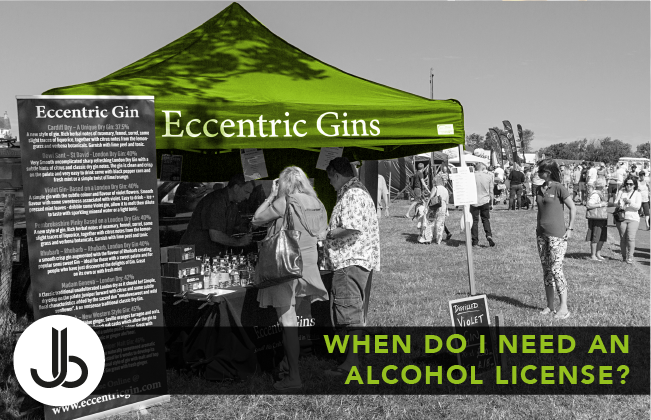

Scenario #1: You provide alcohol as part of a wedding catering package.
Where a wedding takes place in an unlicensed venue and the client pays for all the alcohol though your business – i.e. there’s a free bar and wine on the tables during the meal but your client paid for this as part of a package you have put together, then this is licensable and a retail sale so you will need a licence.
Scenario #2: You provide wine and food for a ticketed event at a village hall.
If you supply alcohol as part of an offer you would need a licence (rather than the village hall), whether there was a separate charge for alcohol and food or not. For example, the ticket states that the buffet costs £9.99 with a complimentary glass of wine included. In this situation you would need a personal licence because in reality you are supplying alcohol as part of the cost. The same would apply if the tickets were available for £8 without alcohol but £11 with one glass of wine included.
The village hall would not necessarily need to be licensed as you would get a TEN for the one-off event. In a situation like this, it would be wise to check with the venue whether you are expected to take responsibility for any alcohol supply under the terms of hire, or whether they have a premises licence you could trade under.
Scenario #3: You run a Prosecco van and are set to trade at a festival.
In this situation you would undoubtedly be making a retail sale as you would take money from the end customer for each glass of drink provided. Therefore you would definitely need to have a personal licence and a TEN or premises licence would need to be in place for the festival site.
Scenario #4: You provide wine and food for an office opening.
If a company who’s event it is asks you to supply alcohol and food to its customers and foots the bill, there is no retail sale. This is because you are not selling to the end consumer. Prior to the event, the alcohol had been sold to you as a “trader for the purposes of his trade” and is a freebie for the end consumer. There is no retail sale so no licence is required.
Scenario #5: At the same event, free alcohol is linked to a good or service that customers have to purchase.
If you or the company were selling tickets to customers to attend, asking them for a donation for the alcohol or clearly linking the “free” alcohol to a good or service they had to purchase on the day of the event, the customer would be buying the alcohol, albeit by roundabout means. This would mean that a retail sale is taking place and as the supplier of the alcohol, you would need a personal licence. Under such circumstances, you or the company would also need to have a Temporary Events Notice (TEN) in place for the provision of alcohol to take place.
A TEN allows for the sale of alcohol at temporary events where less than 500 people are on the premises at any one time, like wedding receptions and one-off charity events.
Scenario #6: You run a food business and want to provide a miniature bottle of alcohol alongside a hot chocolate.
It would still be licensable no matter how big or small the bottle. The licensing act kicks in when the % is met; it has nothing to do with quantity. Anything over 0.5% is classed as alcohol and so for that, you would need a premises licence for the location that you are selling or dispatching (if online sales), in addition to one person named as a designated premises supervisor (who would have to hold a personal licence).
If you would like advise on whether you might need a license, or help with an application or appeal then get in touch with our team of experts by emailing info@johnsonandboon.co.uk, calling 0151 637 2034 or by booking an appointment through our free mobile app, available to download on both Apple and Android app stores.
